Why Balance Personalization, Automation and AI in Marketing? [Video]
It's an age-old question: Just because we can, does that mean we should?
You can apply this thought exercise to almost any context, but this is perhaps no more relevant than today's marketing ecosystem. Technology has given marketers the power to automate any workflow, email submissions, or execution of entire marketing campaigns.
It's a foregone conclusion that today's marketing managers must work faster, more efficiently, and with increased efficacy to compete in a global, diversified marketplace. While devices and software have made it easier than ever for marketers to produce, publish, monitor, and evaluate content on nearly a 24/7 basis, the question must be asked:
With our focus on customer-centric marketing, at what point does the shift toward automation and away from personalization do we see diminishing returns? Should marketing professionals be wary of their reliance on automation to engage with potential customers or audiences?
It would be simplistic to suggest that automation or AI has destroyed the human element in reaching and motivating audiences and that personalization is a dinosaur-era component of successful marketing.
The trick is identifying the concrete benefits of personalization and automation and creating the perfect strategy to connect and engage with consumers effectively. We need to understand platforms and culture.
The Case For (Automation In) Marketing
At the 40,000-foot view, marketing automation can best be described as any resource, tool, or solution that gives companies the power to streamline marketing workflows or processes to increase the efficiency of marketing budgets, experience more robust ROI, and grow their footprint in their given industry or field. This also includes artificial intelligence, analytics, and reporting tools that allow marketers to create and share messages, telling a more compelling and convincing story.
Today, marketing automation includes various elements, from automated email marketing to social media publishing suites, text message-based software, and AI-powered content generation. Suppose we understand that creating content and messaging is perhaps easier than ever. In that case, the overarching case for automation in marketing resides in allowing your company to influence as vast and varied a consumer base as possible with much less financial investment, time, and manpower.
Marketing managers can also experience significant advantages via:
-
Scalability: If lucky, companies encounter a significant problem as their marketing campaigns (and the success thereof) grow: marketing needs and demands quickly outgrow the resources and capabilities a company currently possesses. This is where marketing automation saves the day by helping you scale your marketing efforts and campaigns to meet your current customer needs with relatively few challenges or learning curves. Automated marketing solutions that can service your short and long-term growth allow you to support your customer needs today and better position yourself for tomorrow's customers by providing peace of mind that you're equipped to handle increased, nuanced, or complex workloads.
-
Enhanced collaboration between sales and marketing teams: If not necessarily at odds, the sales and marketing teams often have a lukewarm relationship at best. The disconnect between the two often stems from the nebulous nature of the buyer's journey from the lead stage to the conversion stage – each side claiming the other has dropped the ball at some point. Marketing automation solutions provide greater end-to-end visibility where the sales and marketing teams can track the buyer's journey, understand the obstacles, and work collaboratively to ensure customers move through the pipeline feeling well-served by the company.
-
Analytical insights and forecasts: Even the most creative-minded marketer understands we live in a data-driven world and industry. Numbers don't lie, and marketing managers rely on detailed reporting and analytics to evaluate the success of a campaign and demonstrate to customers their innovative approaches to content indeed move the needle. Marketing automation gives companies real-time insight into campaign performance and overall spending and a bar to judge concurrent campaigns. Still, they also offer predictive analytics where marketers can better understand how a campaign will perform BEFORE it's even launched.
What About The Human Element?
OK, Mr. or Mrs. Marketing Manager, you have the latest and most incredible marketing software solution at your fingertips. You've done the training, the onboarding, and the research, and now you're set to execute the most effective marketing campaigns your company has ever seen with just a few keystrokes or mouse clicks. Just plug and play and let the algorithms take over, right?
No, not quite. Even though marketing automation helps you increase the volume or reach of your voice, you can't forget that today's customer still likes to be addressed personally as opposed to a greeting tag your email automation software creates.
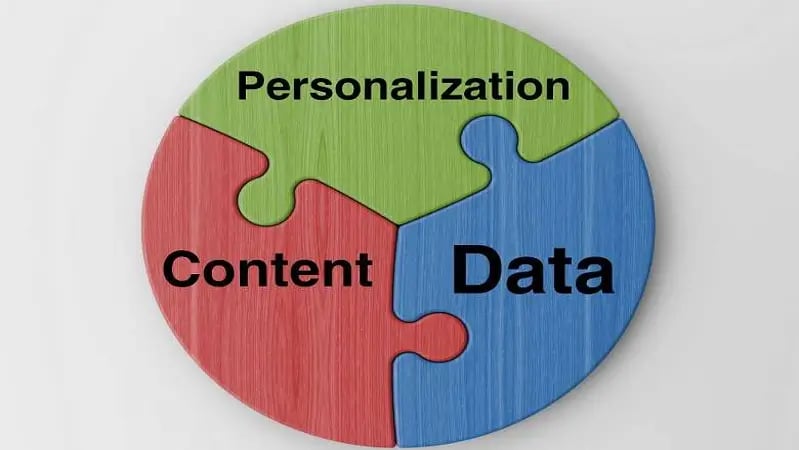
Think about this example: Remember going to the gift shop at a museum or zoo and seeing racks of zoo-branded keychains with first names on them? Remember feeling oddly excited when you found a keychain with your name on it? Weren't you more likely to buy a zoo-branded keychain with your name than that one without your name? This is a super-basic example, but you understand that humans are conditioned to respond better to messages that make us feel like individuals rather than a nameless mass.
For this reason, as well as several others, you still need to emphasize personalization and the human element of marketing if you want your campaigns to succeed in today's automated world. It's the people you score marketing wins with.
-
Better content creation: Understanding your audience on a personal level gives you the insight to create content that is more suited to them. Yes, this sounds basic, but many of the misfires in marketing campaigns stem from the one-size-fits-all mentality that marketing managers can fall into. While automation may help you better identify specific audiences or segments of your consumer base, personalizing the content relative to those audiences is where the rubber meets the road to a campaign.
-
Deeper relationships with customers: If you demonstrate you understand your customers and can effectively personalize marketing campaigns to their needs, challenges, and opportunities, the relationship with that customer deepens, which likely provides more collaboration opportunities down the road. Also, given the proliferation of professional networking websites like LinkedIn, creating a meaningful relationship with a customer can open up new opportunities via referrals, word of mouth, and networking.
-
Gives your company an identity or face: If today's thriving cottage industry via sites like Etsy or others has demonstrated anything, the average consumer would instead buy products or services from a company with an identity or face as opposed to a nameless conglomerate. Personalizing your marketing content makes your consumers feel more connected to your products and services. It makes them feel ‘at home’ when browsing your website, engaging with your social media, or working with your sales and product team to complete transactions.
Blending Automation And Personalization
It's easy to think of automation and personalization in today's marketing landscape as two distinct arenas; in fact, marketing managers often get into trouble by conceiving automation tasks and personalization as a zero-sum game where only one can win. But the truth resembles a blend of automation (the tools, the power, the amplification) and personalization (demonstrating your ability to honestly know and understand the customer) that rules the day. While automation helps companies identify new audiences, place them in more accurate and definable buckets, and engage with them more efficiently, personalizing content and messaging coaxes the consumer through the buyer's journey.
Suppose automation is the vehicle in which a customer travels. In that case, personalization is the driver ferrying the customer from Point A to Point B. Companies need a robust, reliable vehicle and a skilled, personable driver for successful passage.
This content is also available in:
- German: Warum ein Gleichgewicht zwischen Personalisierung und KI im Marketing?
- Spanish: ¿IA, auto y personalización en marketing? Equilibrio
- French: Pourquoi équilibrer la personnalisation et l'IA dans le marketing ?
- Italian: Perché bilanciare personalizzazione, automazione e IA nel marketing?
- Romanian: Echilibru: personalizare, automatizare și AI în marketing
- Chinese: 为什么要在营销中兼顾个性化、自动化和人工智能?视频




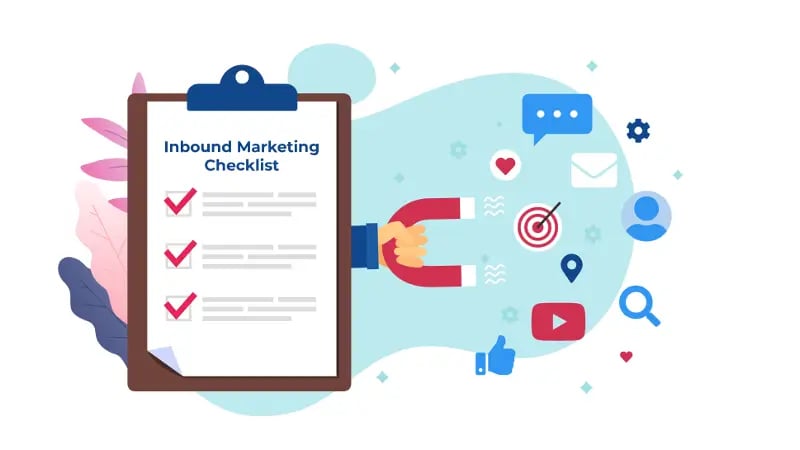


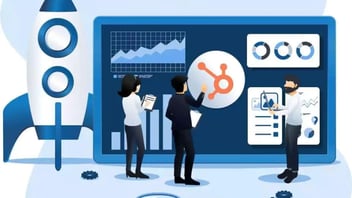
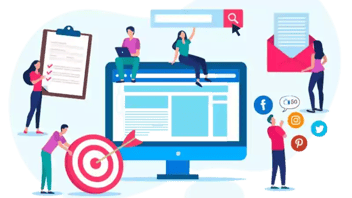
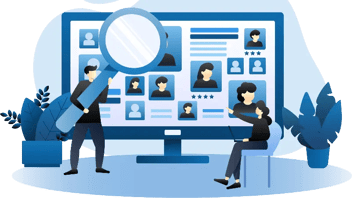
Leave a Comment